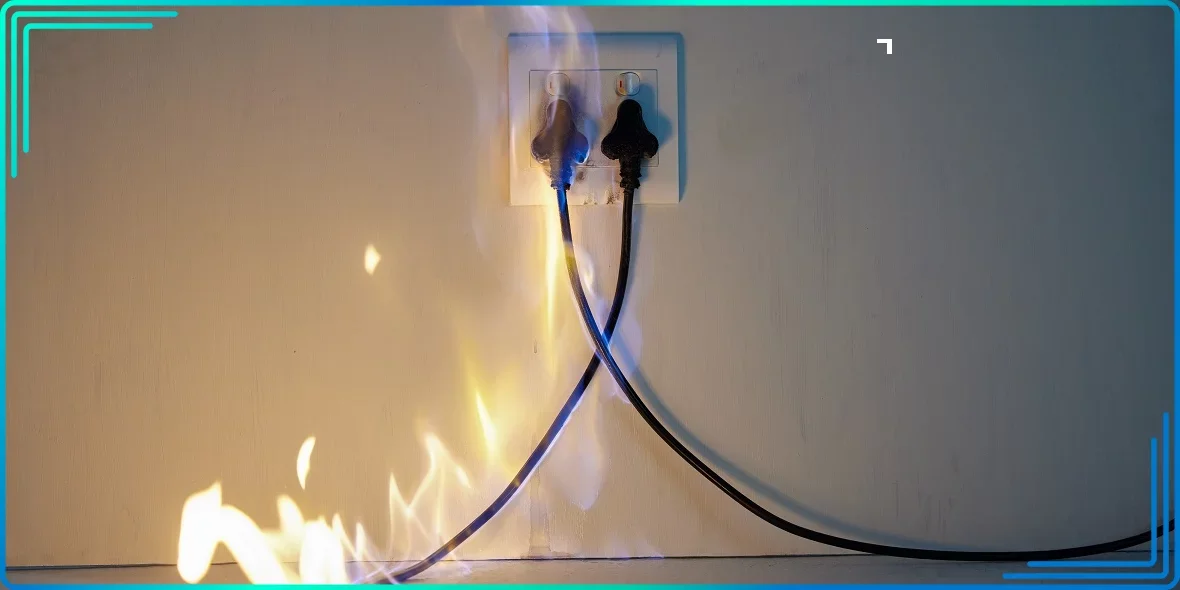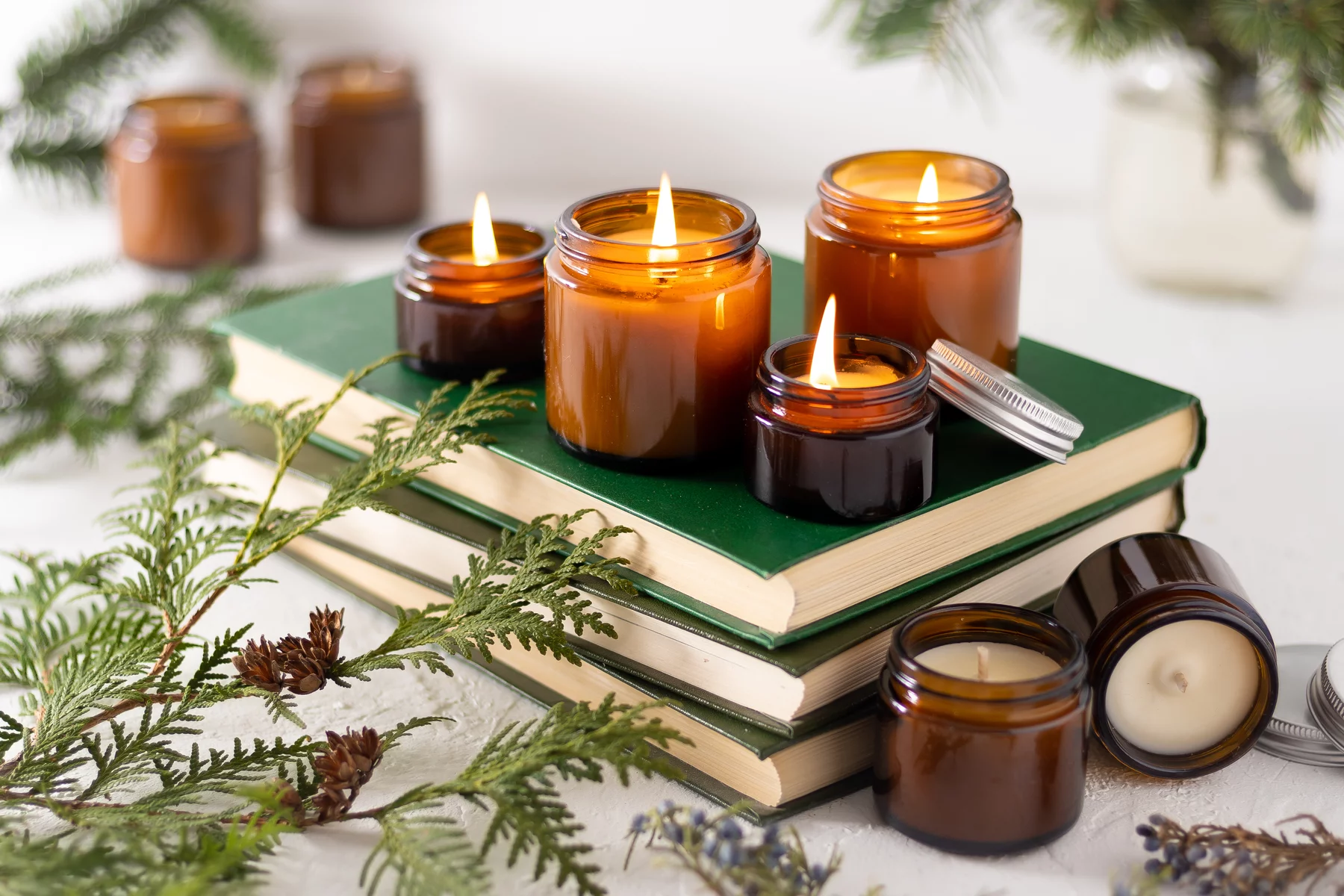
Leading Causes of Accidental Home Fires. How to Protect Your House From Them
Someone makes the joke that since man is a carbon-based life form and carbon burns easily, fire is the most dangerous element of all. There is some truth to this. Carbon is part of organic matter, meaning animals and plants contain it. That's why wood, paper, and natural fabrics burn very well. And since we use all these materials in our houses, the risk of household fires presents itself even in a seemingly safe place: our homes.
You have to be careful and try to eliminate the possibility of household fires, because even though there may be people around, it is very difficult to put out a fire. It spreads quickly; it burns in the presence of oxygen, which is everywhere in the air. A person is usually paralyzed by fear and doesn't put out the fire because it is scary to get burned. So you stay away from the fire, and time is running out to correct the mistake.
What Causes Home Fires?
The reasons for fires are accidents or human negligence. The most common causes are: fires caused by open flames (lit matches and cigarettes, fireplace, stove, aroma lamp), faulty wiring, and damage to individual electrical appliances. While no one is immune to hidden damage to wiring, it is within your power to use household appliances correctly.
Cooking fires
Since humans need to eat every day regardless of their habits and weather, heat treatment during food preparation is the most frequent occasion where humans come into contact with fire in one form or another. This includes the fire itself (campfire, barbecue grill), the fire of a gas stove, the hot surface of an electric stove, and electrical equipment such as a steamer, microwave, waffle maker, and many others.
How to prevent a house fire:
- Remember that potentially dangerous items should stand on stable surfaces. If, for some reason, the table is wobbly, place the waffle iron on another table.
- Plates, pots, and other items should not be left on the surface of a gas or electric stove overnight.
- Also, do not store flammable objects near hot surfaces at night or during the day. Perhaps the wind from the window will push a curtain or a paper towel towards the stove, and they will catch fire. In the meantime, you'll be taking a shower or looking for a hat in your closet.
- Cooking equipment should be clean of grease and food residue.
- No objects should be kept in the oven.
- Receive timely service for gas and electric stoves. In some countries, the gas or fire department inspects the relevant equipment once a year, even without prior requests.
- Comply with the requirements of the fire department, e.g., how large the stove should be depending on the size of your kitchen.
Smoking
Smoking is not only bad for your health but is almost as often a cause of fire as cooking. Some people do not smoke every day, but only when they want to relax at a party where alcohol is present. And people with altered consciousness (after using alcohol or drugs) can harm themselves without even realizing it. Someone smokes all the time without even noticing the number of cigarettes they smoke. A person can fall asleep with a cigarette in their hand and be burned alive. Ashes falling on the carpet can also be dangerous.
E-cigarettes can also be a fire danger because they heat up when used. In addition, their lithium-ion batteries are often cheap and can ignite. Therefore, in 2015, the U.S. Department of Transportation banned e-cigarettes from being carried in luggage “because the devices can generate excessive heat and an incident could result in the ignition of nearby contents,” according to the text of the regulation.
Heating equipment
Be careful. Even a serviceable electric heater left unattended can cause a fire.
- Turn on electrical equipment in the following order: First, insert the plug of the cord into the outlet, holding the plug with your hand. Secondly, press the “switch on” button on the equipment itself.
- To turn off the equipment in reverse order, first press the “off” button. After that, pull the plug out of the socket, holding the plug.
- Use the equipment only for its intended purpose after reading the operating instructions.
- Have the equipment repaired by specialized workshops, not by yourself.
- Do not use the equipment after the expiration date. If you are sorry to throw away still visually usable household appliances, find out where the disposal sites for such items are located. Sometimes, when you turn on an appliance, you may get a fixed sum of money for it. It's not much, but it's still nice.
If you want to create an atmosphere of warmth and coziness, you can also light candles. But place them on glass, ceramic, or stone surfaces so that hot wax and fallen candles do not cause a home fire.
Kids playing with fire
Even ordinary objects in the hands of small children become dangerous because they do not know how to use them correctly and do not understand the consequences. Kids are one of the leading causes of home fires. Therefore, it is necessary not only to explain safety rules to your child but also to organize practical training.
Teach children how to use incendiary devices; show by example that when you use fire, you direct all your attention to this process. The fire is out, safety is maintained, and now you can watch cartoons. Show how and where to put the candle and how to quickly extinguish it. You do not need to prohibit the use of matches, because any prohibitions cause a desire to violate them. Just put matches and lighters away where children will not find them.
Electrical systems and equipment
Although electrical wires are protected by a sheath against mechanical damage and water ingress, insulation can become loose over time. Firefighters recommend changing the wiring every 15 years, but, of course, few people do it. The shelf life of this sheath is 10 to 30 years, though. Electrical wires can be bent or crushed by something. Pets or rodents can also damage wires. Electrical wires are the things that can cause fire if you forget that they're a potentially dangerous part of your house.
- Never put water near electrical wires.
- There are high-powered appliances like hair dryers, mixers, irons, microwaves, and air conditioners, and there are low-powered appliances like televisions and computers. Do not load the wires by turning on all the appliances at the same time.
- After using an electrical appliance, unplug it from the mains. Remember: if something is not used right now, it should not be connected to electricity. The refrigerator, landline phone, and internet router are the only exceptions to the rule.
Candles
Candles come in different varieties, but the principle of use is the same: the candle burns, the wax heats up, melts, and floats down. The heat that the candle puts out is enough to make you feel cozy. Often, candles are used for reading, romantic evenings, fortune-telling, card reading, and simply to decorate a room.
Improve fire protection at home. Take care that the candle holder or stand should not get hot, should be no smaller than the candle itself, should be stable, and should be placed far away from other objects. You should not hang anything over the candle. And near the candle, there should not sbe anything wobbling, falling, or blocking the view.
Fireplaces and wood stove
The fireplace must be enclosed to prevent embers and sparks from escaping. The floor around it is made of heat-resistant material. While a fireplace is usually used on rare occasions, a stove may be the only source of heat in the house. Make sure the chimney is passable. Carbon monoxide must be able to escape freely to the outside. Soot should be removed in a timely manner; it is easily ignited. Do not place objects made of wood or paper in the fireplace. Remove bedding or clothing from the stove’s bed immediately after getting off the stove.

Flammable Liquids
Industrial plants also experience fires due to safety violations; the presence of flammable chemicals exacerbates well-controlled actions, so smoking can easily cause fires.
Do not store flammable substances (gasoline, ignition raw materials) in residential structures. If you need these items, have them in a garage or shed, for example. If something happens and a non-residential structure catches fire, your home will remain intact. Remember, your safety comes before your comfort. If you are too lazy to bring firewood from the shed, so you store it in the house near the fireplace, this is not a good idea.
Christmas trees
Electric garlands and real candles, which are used to decorate Christmas trees, can ruin the holiday if left unattended. In a live Christmas tree, there is wood, which has a high resin content and ignites much faster than dry wood. So a decorated tree is one more fire hazard at your home. If the spruce is artificial, however, it is most likely made of plastic, which emits toxic fumes when burning. Unplug garlands when leaving the room or going to bed.
How to Prevent Fires at Home
In modern homes, installing smoke detectors is a must. When you are asleep, you cannot control what is happening.
- Therefore, in case of fire or smoke, the fire alarm system will wake you up and, depending on the settings, automatically call the fire department.
- A fire extinguisher will also not be an unnecessary purchase.
- Remember that several times a year you need to change the battery in the smoke detector, and the fire extinguisher should be checked for serviceability. Sometimes the mechanism in it can seize due to rust that occurs from improper storage.
- Pay your cell phone and landline service on time so you can reach firefighters if necessary.
- Do not obstruct your supply and exhaust ventilation with the objects if you have one.
- Keep matches and lighters in metal boxes. Glass or ceramic containers will also work.
- Storage areas should be spacious to avoid rubbing against the match box and pressing on the lighter.
Fire Safety Tips
It is a wise decision to insure your property against fire, among other things. Of course, it is a pity to give money for something that has not happened yet. But when a fire happens, monetary support is always useful.
To worry less about the safety of your valuables, you can scan documents or store them in a safe deposit box, and put material things in special heat-resistant cabinets. They can even be wooden, treated with special compositions that resist burning. It is better to spend money on buying the right materials and organizers than to restore burned jewelry and papers. Just be aware of the consequences of your actions. God protects those who are careful.
Author
I write articles on various topics for foreign audiences. For example, articles about real estate, emigration and so on.



















